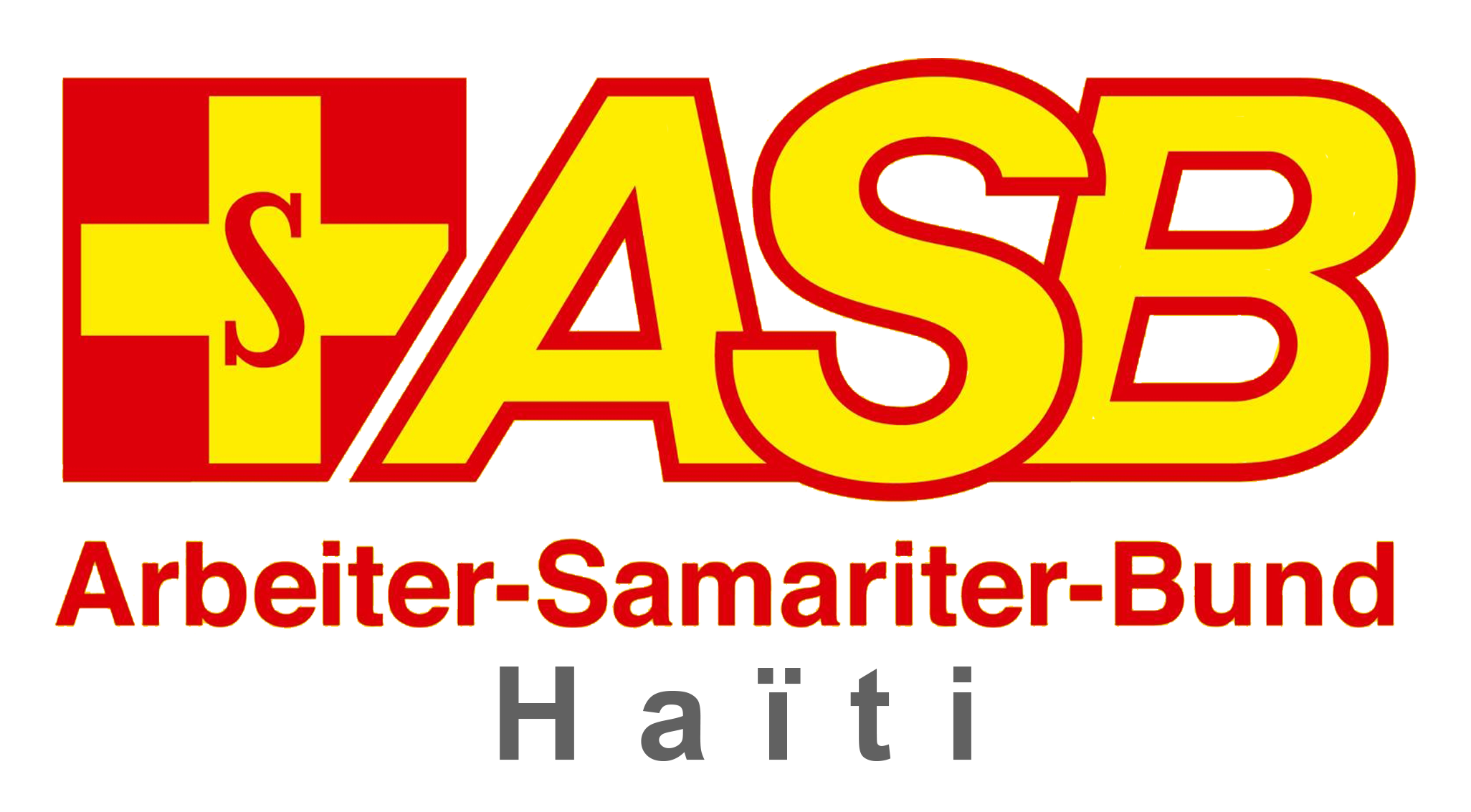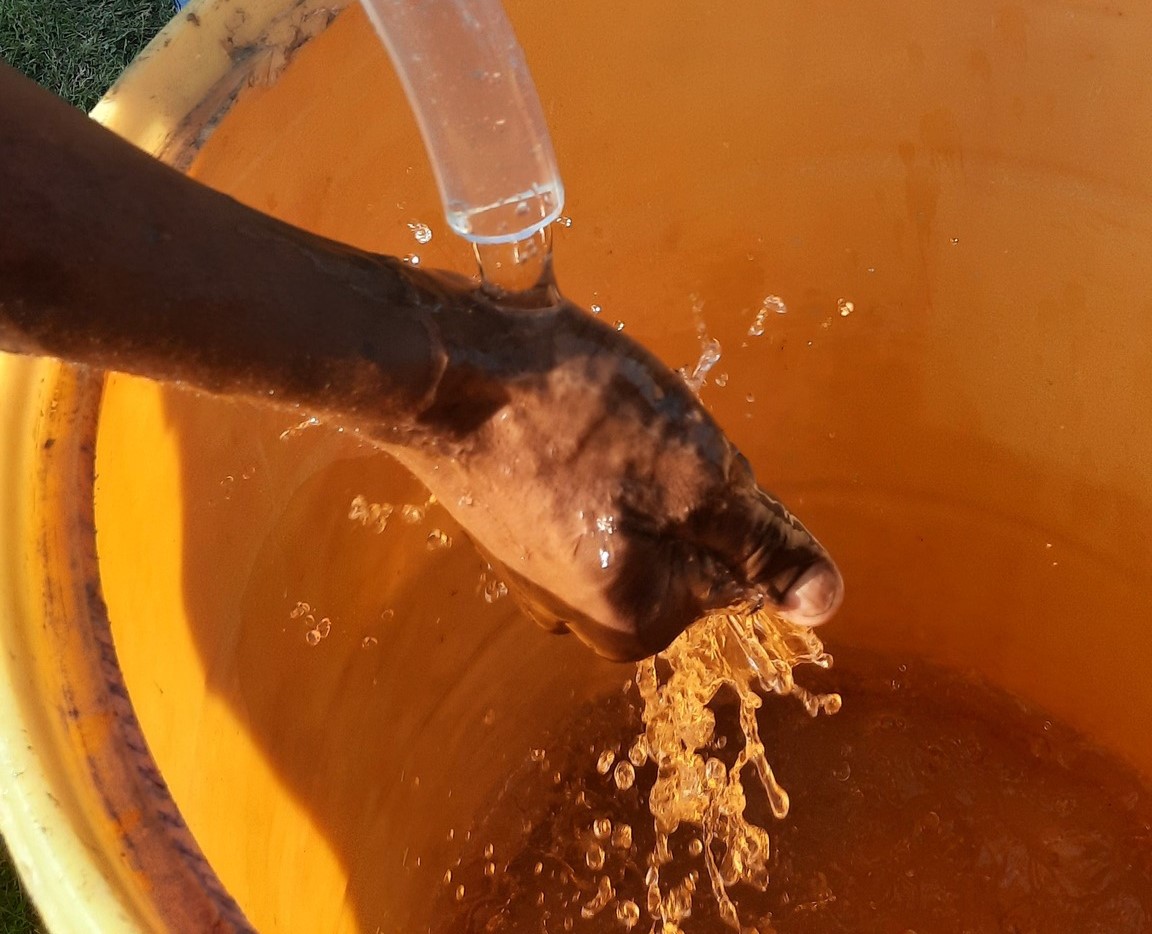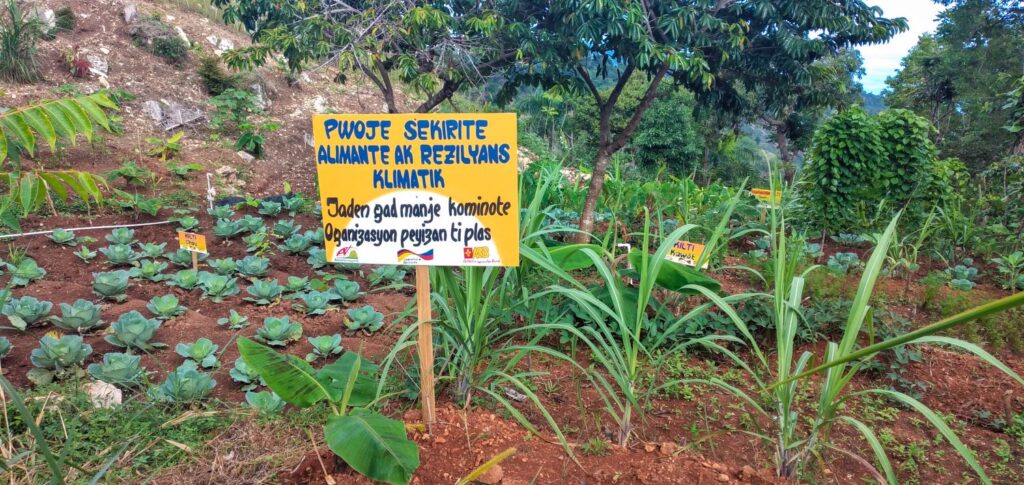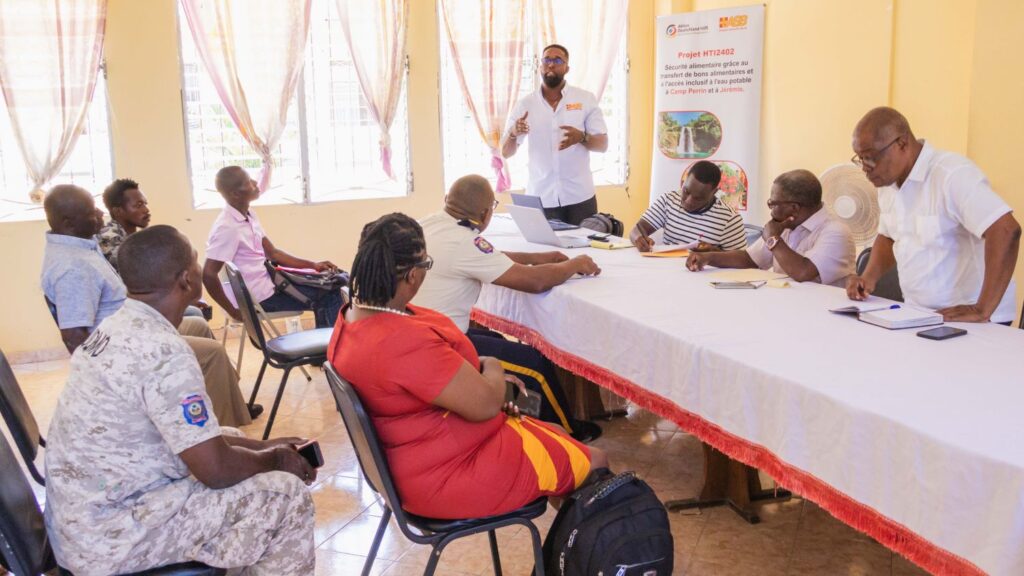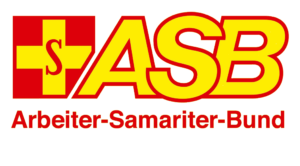ASB, with funding from the Catalan Fund, completed the second phase of a project on COVID-19 in the communes of Petit-Gôave and Grand-Gôave on 15 May. “Nou Pap bay, nou pap pran: Konbit an Aksyon” is a 2-month project carried out in collaboration with 3 local partners in the target communes, namely the Conseil Communal de la Protection Civile (CCPC), the Association à l’Intégration des Personnes Handicapées (ASSIPHA) and the Collectif des Organisations de Femmes de la Région des Palmes. The findings of this project are very revealing.
While Haiti is facing an upsurge in COVID-19, to the extent that a state of health emergency was declared at the end of May, ASB has ended the second phase of its project called “Nou Pap bay, nou pap pran: Konbit an Aksyon”, in partnership with 3 local institutions: the CCPC, COFEREP, and ASSIPHA. The project was carried out in 2 phases, with total funding of €20,000 divided equally between each phase. The first phase prioritized awareness-raising sessions in public spaces such as schools, markets, and churches, while the second phase focused on the impact of COVID on these populations.
Combating COVID in rural areas is imperative. In Haiti, the announcement of the first cases led to a surge in the price of basic necessities, increasing the vulnerability of certain sections of society. At the time, it was only solidarity that enabled these people to survive the situation. The precariousness of the situation made social distancing impossible in most cases, but these communities did not record a high rate of contamination thanks to divine protection, generosity among themselves, and the international solidarity shown during these difficult times.
The global pandemic has had a major impact on people’s lives all over the world, including in rural Haiti. Everyone’s way of life has been turned upside down, with the obligation to wear a mask in many public places such as banks, religious gatherings, and supermarkets, as well as strict compliance with hygiene rules and social distancing measures. In economic terms, the coronavirus has hit households in rural areas hard, particularly those with reduced mobility, according to a survey of 150 families carried out by our partners. The survey also revealed that single-parent and female-headed families were facing serious difficulties in meeting their basic needs.
ASB quickly mobilized to help the people of the Goâvian region, where it has been active for over ten years. Thanks to the six field investigators
recruited by the three partners, knowledge assessment surveys were carried out. These enabled us to understand the realities faced by rural populations and how they have continued to fight against COVID.
Solidarity is still in action. Even in these difficult times, solidarity and empathy remain values recognized by the Haitian people. According to the heads of household interviewed, although they have been hard hit by the pandemic, there have always been plenty of opportunities to show hospitality and solidarity. Having a cup of coffee with a neighbor or sharing a homemade tea made from ginger, cinnamon, turmeric, mugwort, and other medicinal leaves are examples of the generosity shown by the people interviewed. According to them, their resistance to the disease is largely due to their generosity.
As the pandemic continues to rage and Haiti continues to record high rates of infection and death, it is more urgent than ever to show solidarity through our Konbit An Aksyon.
